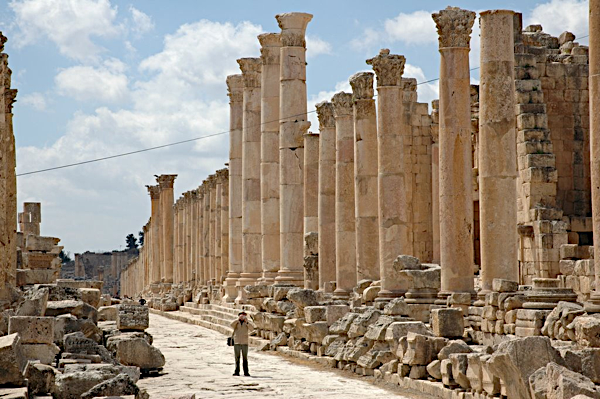Special Topics in History of Art: The Arts of Empire: Visual Responses to Roman Rule in the Middle East and North Africa

This course explores the role of art, architecture, and other material culture in the governance of the Roman Empire. It focuses in particular on the ways in which material remains inform us about issues of colonization, cultural identity, aesthetics, and local difference in relation to archaeological sites in the provinces of the Roman Empire where the University of Michigan had done, or is currently doing, archaeological excavation and field survey. These sites include, among others, Antioch of Pisidia and Aphrodisias in Turkey, Sepphoris, Tel Anafa and Kedesh in Israel, Karanis and Terenouthis in Egypt, Apollonia and Cyrene in Libya, and Carthage in Tunisia. Lectures, class discussion, and research projects incorporate artistic, archaeological, and archival materials in the Kelsey Museum whenever possible. Among the objects from the archaeological sites currently on display at the Kelsey Museum are mosaics, stone and terracotta sculptures, pottery vessels, lamps, glass vessels, coins, and items of personal adornment. An objective of student research projects will be to develop contextual information for the materials exhibited at the Kelsey in preparation for a touch screen or other electronic program for the gallery. These projects will involve students in thinking about how to convey to museum visitors of all ages the significance of this material and the sites from which they come.
Estimated cost of materials: $50-$100.
Required textbook: J. Huskinson, ed., Experiencing Rome: Culture, Identity and Power in the Roman Empire (Routledge: London 2000)
Assigned articles are available on CTools/Canvas. Response (reaction) paragraphs on each reading (100-150 words)
Course requirements:
1st paper/presentation. 10%
Midterm 20%
2nd paper/presentation. 30%
Final exam 25%
Class participation 15% (includes attendance, reading responses and discussion)